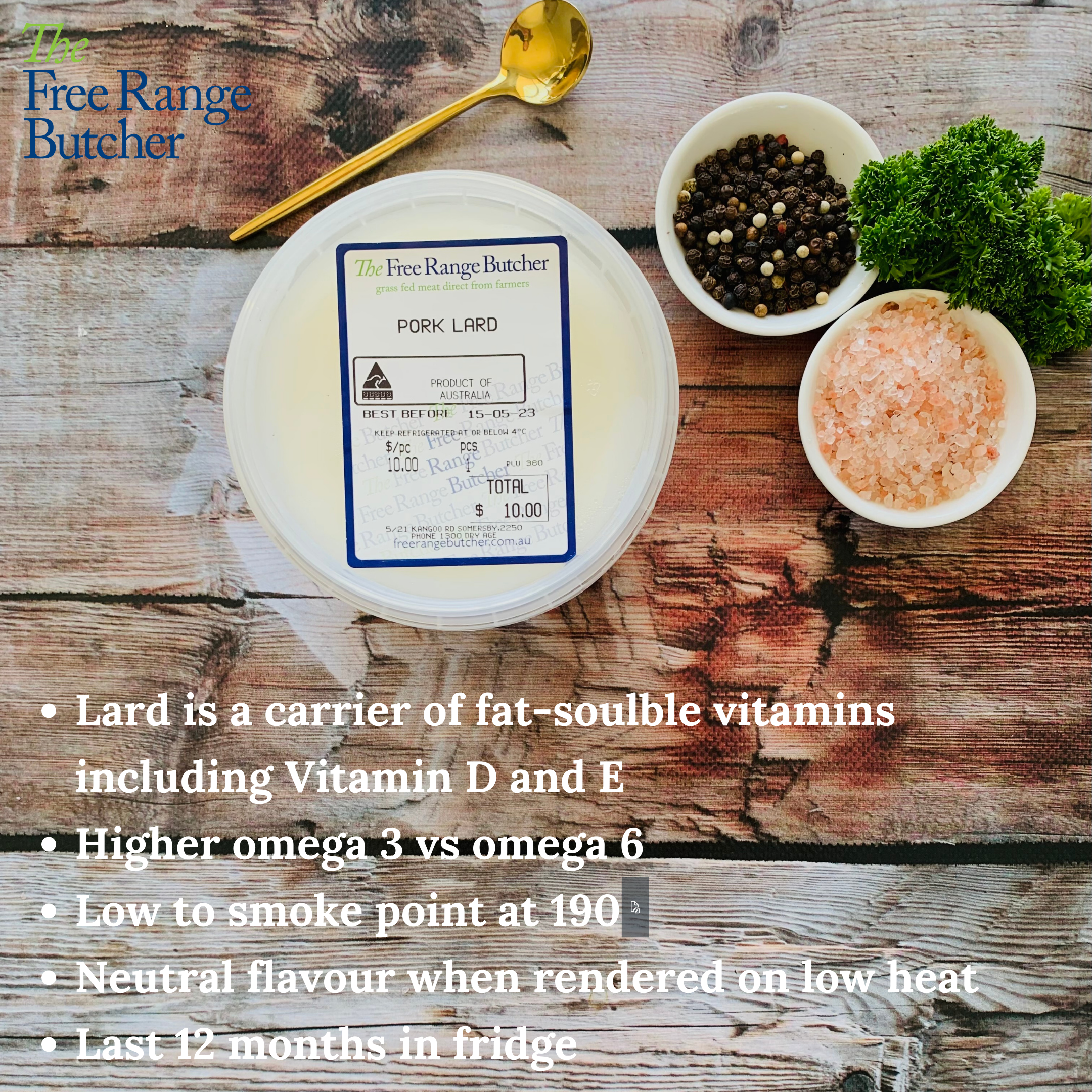
Benefits of Pork Lard
Pork Lard is a delicious and nutritious choice of animal fat for cooking and has a lot of surprising benefits.
When it comes to cooking and eating fats, pork lard often gets a bad rap. However, it’s time to reconsider this misunderstood ingredient. Pork lard, derived from rendered pig fat, has been a staple in culinary traditions for centuries, and it offers a myriad of surprising benefits for both your health and cooking endeavors.
- Nutritional Powerhouse: Contrary to popular belief, lard is not solely composed of unhealthy saturated fats. It contains a balanced combination of monounsaturated fats, polyunsaturated fats, and a rich source of essential fatty acids, including omega-3. These healthy fats support brain function, cardiovascular health, and aid in nutrient absorption.
- Culinary Versatility: lard boasts a high smoke point, making it ideal for high-heat cooking methods like frying, sautéing, and roasting. Its rich flavor enhances the taste and texture of dishes, providing a delicious and authentic touch to traditional recipes such as pastries, fried foods, and savory dishes.
- Enhanced Digestibility: Surprisingly, the composition of lard closely resembles that of human fat, making it easier for our bodies to digest. This quality aids in the absorption of fat-soluble vitamins such as A, D, E, and K, which are vital for various bodily functions, including bone health and immune system support.
- Sustainable and Economical: Using pork lard promotes sustainability by minimizing waste and utilizing the entire animal. It’s a cost-effective alternative to other cooking fats, and its long shelf life allows for extended usage without concerns of spoilage.
With its nutritional profile, cooking versatility, and digestion-friendly properties, pork lard is a great option.
As with any fat or ingredient, moderation is key. It is important to make informed choices based on personal preferences and health considerations.

